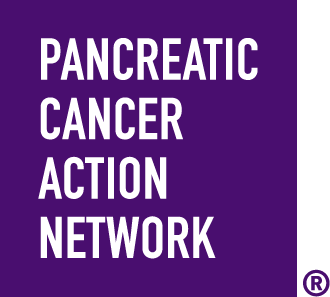About
— Diane Simeone, MD, New York University; Chair-Elect, Scientific and Medical Advisory Board
The Pancreatic Cancer Action Network (PanCAN) is dedicated to fighting the world's toughest cancer. In our urgent mission to save lives, we attack pancreatic cancer on all fronts: research, clinical initiatives, patient services and advocacy. Our effort is amplified by a nationwide network of grassroots support. We are determined to accelerate progress and improve patient outcomes.
The five-year survival rate is now 10 percent. Each person who dies from pancreatic cancer is a mother, daughter, father, son, husband, wife, sister, brother, colleague or friend. We fight for every one of them.
Why We Wage Hope
Pancreatic cancer kills more Americans than breast cancer and has a five-year survival rate of just 10 percent. The disease is the third leading cause of cancer-related death in the United States. We are fighting five key challenges:
-

Not enough researchers and resources in the field
-

Clinical trials don't match patient needs
-

Clinical trial enrollment is too low
-

Many doctors lack experience treating the disease

Lack of public awareness about the disease
PurpleStride fundraising helps us meet these challenges head on.
How We Wage Hope
Wage Hope is our rallying cry that expresses the spirit behind everything we do. This is not the “cross your fingers” kind of hope. It’s a hope with teeth. Hope doesn’t always mean action, but action is our middle name. And our hope delivers a plan of attack. We shape policy, mold opinion and firm up funding. We don’t take no for an answer. We deliver a message of hope loud and clear through four key areas.
Moving the Needle
From our beginning as a three-person nonprofit to our role today as the nationwide network supporting the pancreatic cancer community, the Pancreatic Cancer Action Network has made significant progress fighting this deadly disease—thanks in large part to change agents like you. Here are a few of the things we’ve achieved together.-
1999
The Pancreatic Cancer Action Network was founded by Pamela Acosta Marquardt, Paula Kim and Terry Lierman.
-
2000
Inaugural One Voice Against Cancer advocacy days held in Washington, D.C.
-
2002
40 volunteer affiliates established nationwide who raised nearly $364,000
-
2006
Government Affairs & Advocacy office opens in Washington, D.C., and first international affiliate launches in Japan
-
2007
25,000 patients and caregivers have been served by our call center
-
2008
Established the Deadliest Cancers Coalition focused on addressing policy issues related to cancers that have five-year relative survival rates below 50 percent
-
2011
Since 2003, we funded 66 research grants, representing a cumulative investment of approximately $10 million
-
2012
Recalcitrant Cancer Research Act signed into law requiring the National Cancer Institute to develop a strategic plan on how to fight pancreatic cancer
-
2013
Nearly 82,000 people participated in our PurpleStride run/walk events that raised $10.5 million
-
2014
Launched Know Your Tumor® precision medicine service that uses molecular profiling to provide patients and their doctors with information about the biology of their tumor
-
2015
Launched Clinical Trial Finder online tool with access to the most comprehensive and up-to-date database of pancreatic cancer clinical trials in the U.S.
-
2016
Led the creation of the World Pancreatic Cancer Coalition representing 40 pancreatic cancer advocacy groups from around the globe
Launched Patient Registry, a global online database created to look for patterns in treatments, side effect management and diagnostics that will lead to improved treatment options and outcomes for patients





